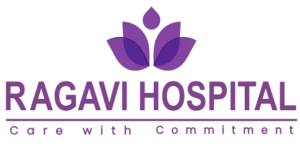Paediatric Surgery: Restoring Childhood Health and Hope
Introduction
Paediatric surgery is a specialised field of medicine dedicated to the surgical care of infants, children, and adolescents. It focuses on diagnosing, treating, and managing a wide range of surgical conditions that affect young patients, from newborns to teenagers. Paediatric surgeons are highly skilled experts who understand the unique medical and emotional needs of children and their families. Whether a child requires a minor procedure or complex surgery, paediatric surgery is here to ensure their well-being and promising future.
Symptoms
Paediatric surgical conditions can present with various symptoms that may indicate the need for surgical intervention. Common symptoms that may prompt a visit to a paediatric surgeon include:
- – Abdominal pain and distension.
- – Swelling or masses in the neck or other areas.
- – Difficulty breathing or swallowing.
- – Inherent inconsistencies like congenital fissure and sense of taste.
- – Traumatic injuries and fractures.
Paediatric surgeons are adept at assessing these symptoms and determining the appropriate surgical approach.
Causes
Paediatric surgical conditions can arise from a variety of causes, including:
- – Congenital factors: Conditions present at birth, such as heart defects, gastrointestinal anomalies, or neural tube defects.
- – Trauma: Accidents, injuries, and falls that result in fractures, burns, or other surgical issues.
- – Infections: Conditions that require surgical drainage or intervention.
- – Tumours: Benign or malignant growths that require surgical removal or management.
- – Inflammatory conditions: Such as appendicitis or Crohn’s disease that may require surgical treatment.
Understanding the root causes of paediatric surgical conditions is crucial for paediatric surgeons to provide effective care and guidance.
Diagnosis
Paediatric surgeons employ a combination of diagnostic tools to identify, assess, and diagnose surgical conditions in children. These may include physical examinations, imaging studies like X-rays, CT scans, or ultrasounds, and laboratory tests. A comprehensive understanding of the child’s medical history, family history, and lifestyle helps paediatric surgeons create tailored treatment plans.
Treatment & Procedures
Paediatric surgery encompasses a wide range of treatments and procedures aimed at addressing various surgical conditions. Common paediatric surgery treatments and procedures include:
- – Appendectomy:The careful evacuation of the informative supplement.
- – Corrective procedures for congenital anomalies:Repairing conditions such as cleft lip or heart defects.
- – Tumour removal:Surgically addressing benign or malignant growths.
- – Trauma surgery: Treating injuries like fractures, burns, and lacerations.
- – Minimally invasive surgery:Using small incisions and specialised instruments for less invasive procedures.
The choice of treatment or procedure depends on the child’s diagnosis and the most effective path to recovery.
Prevention
Preventive care is a central focus of paediatric surgery, and it includes:
- – Childproofing to minimise the risk of accidents and injuries.
- – Vaccinations to prevent infectious diseases.
- -Regular check-ups to detect and address congenital anomalies early.
- – Safety education for parents and children to reduce risks.
Paediatric surgeons work with children and their families to provide guidance on preventive measures and ensure the well-being of young patients.
FAQs (Frequently Asked Questions)
- Is surgery always necessary for paediatric conditions?A.Surgery is considered when it offers the best chance of healing or improving a child’s condition. Paediatric surgeons explore non-surgical options when appropriate.
- How long is the recovery process after paediatric surgery?A.Recuperation shifts relying upon the kind of medical procedure and individual elements. Paediatric surgeons provide specific post-operative instructions and guidance to ensure a smooth recovery.
- Is paediatric surgery safe for children?A. Paediatric surgery is generally safe when performed by experienced professionals. Paediatric surgeons discuss potential risks and benefits with parents and caregivers before the procedure.
- Can congenital anomalies be treated with paediatric surgery?Many congenital anomalies can be successfully treated or managed with paediatric surgery, improving a child’s quality of life.
Paediatric surgery is a specialised and compassionate field of medicine dedicated to the well-being of infants, children, and adolescents. Whether your child requires surgery for a congenital condition, an injury, or another surgical issue, you can trust the expertise of paediatric surgeons to provide the best care and support their health and future. If you have further questions or concerns about paediatric surgery, don’t hesitate to consult with your healthcare team for personalised advice and support.
